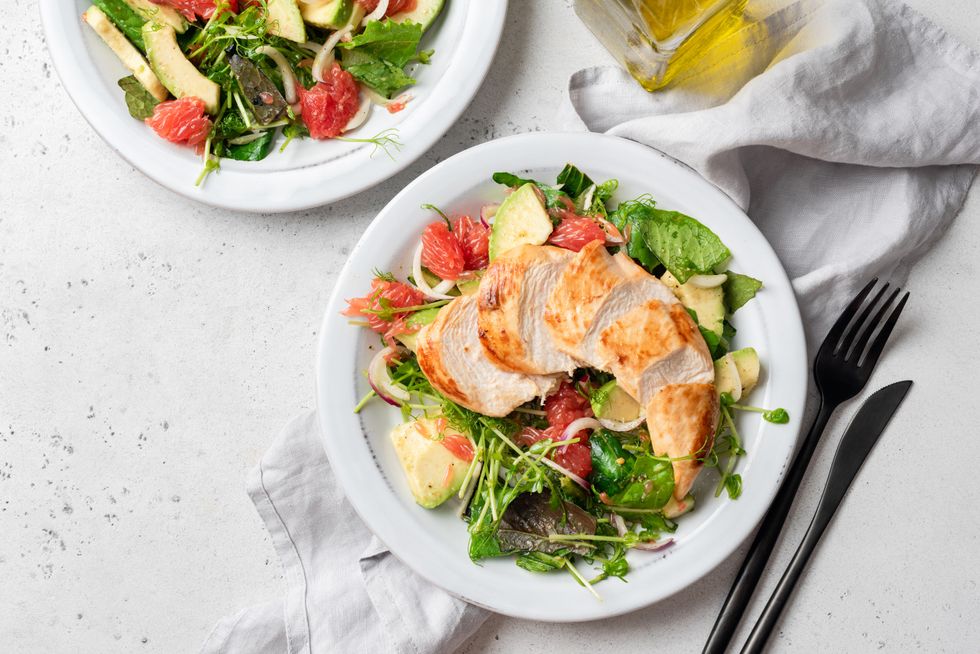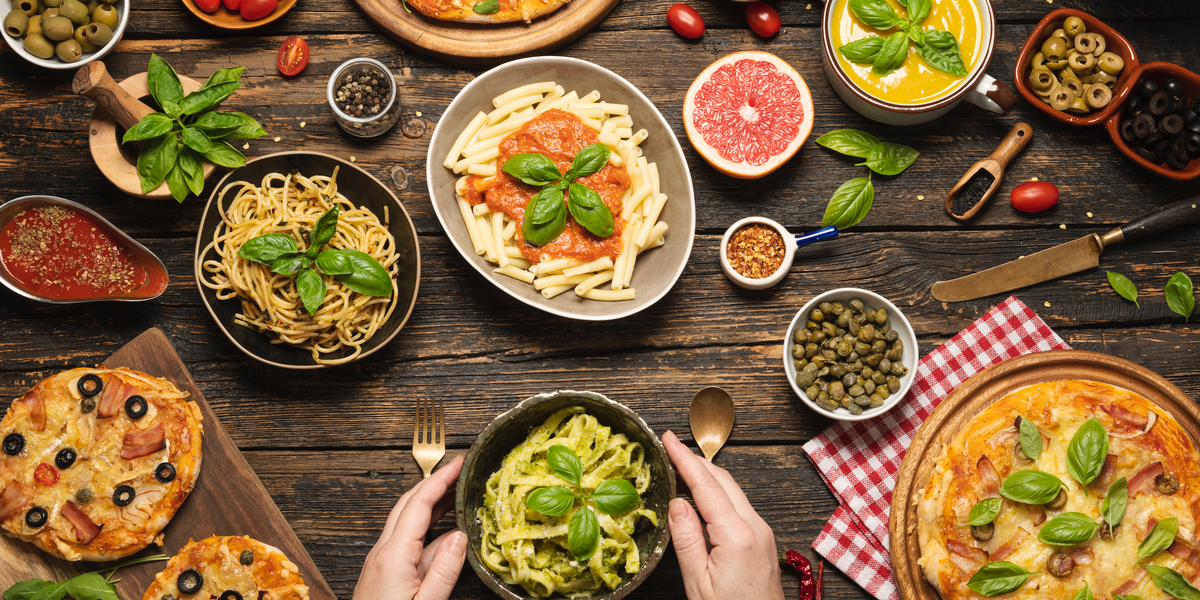Cutting out the “poisonous five P’s” gives you the best shot at longevity, claims one of the world’s foremost longevity experts.
These dietary staples – commonly found in the Western diet – are responsible for rising rates of obesity and chronic disease, claims Valter Longo, an Italian-American biogerontologist and cell biologist.
What are the ‘poisonous five P’s’ and why should we avoid them?
Mr Longo, who aspires to live to 130, describes the “poisonous five P’s” as pizza, pasta, protein, potatoes and pane (bread).
Speaking to theNew York Times, he blames these five offenders for the alarming rise of obesity among Italian youth: a problem outlined in a 2020 report from the World Health Organization (WHO).
Longo blames the ‘five P’s’ for increasing rates of obesity among Italian youth
Getty Images
What the research says
These items are thought to contribute to a range of chronic diseases and accelerate ageing.
For example, pizza and pasta are often high in refined carbohydrates, which have been stripped of nutritional value.
Regular consumption of refined foods rich in added sugar has been shown to increase your risk of chronic conditions like obesity and heart disease – the two biggest killers.
And potatoes, particularly when fried or processed, can contribute to weight gain and metabolic issues due to their high starch content and association with unhealthy cooking methods, research shows.
And eating too much red meat has been linked to cancer and heart disease.
That is not to say you should do a way with them altogether. Many people would find Mr Longo’s advice reductive.
The NHS points out that starchy foods, such as pasta, are a main source of carbohydrates and have an important role in a healthy diet.
They are a good source of energy and the main source of a range of nutrients in our diet. As well as starch, they contain fibre, calcium, iron and B vitamins, notes the health body.

Skinless poultry and lean cuts of meat are healthy alternatives to red meat
GETTY
Also, red meat is not representative of all forms of protein.
Meat is a good source of protein, vitamins and minerals, including iron, zinc and B vitamins. It’s also one of the main sources of vitamin B12.
Lean cuts of meat and skinless poultry are healthier alternatives to red and processed meat such as bacon, ham and sausages, the NHS points out.
Mr Longo advocates switching to the fasting-mimicking diet instead. It’s high in unsaturated fats and low in overall calories, protein, and carbohydrates and is designed to mimic the effects of a water-only fast while still providing necessary nutrients and making it much easier for people to complete the fast.
Research suggests he’s on to something: a study published last month found the dietary approach reduced biological ageing.

Sarah Carter is a health and wellness expert residing in the UK. With a background in healthcare, she offers evidence-based advice on fitness, nutrition, and mental well-being, promoting healthier living for readers.








